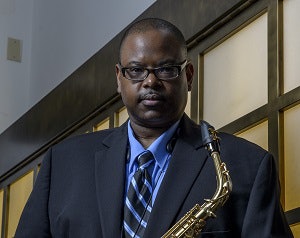Higher education is at a crucial juncture. With the advent of a social climate that questions the validity of facts, scientific evidence and critical thinking, higher education has come under attack from a myriad of stakeholders. In his 1987 essay, “The Loss of the University,” Wendell Berry writes:
“The thing being made in a university is humanity. … [W]hat universities … are mandated to make or help to make is human beings in the fullest sense of those words — not just trained workers or knowledgeable citizens but responsible heirs and members of human culture. … Underlying the idea of a university — the bringing together, the combining into one, of all the disciplines — is the idea that good work and good citizenship are the inevitable by-products of the making of a good — that is, a fully developed — human being.”
 David C. Clark
David C. ClarkA diverse assembly of students are entering colleges and universities in a much different place than past students. In his book, College (Un)Bound, Jeffrey Selingo shares the observations of Richard Arum and Josipa Roksa, that students are “ … drifting through college without a clear sense of purpose …” Faculty, administrators and staff need to be reminded of the importance of not only the technical skills and knowledge delivered to students for employment, but an informed understanding of the human condition is equally needed. One need only look at our present society to recognize how much empathy is lacking from our human fabric. Colleges and universities are in a unique position to help students not only obtain high- level workforce skills and intellectual prowess, but an understanding of the human condition that will allow students to effectively use these skills in service to humankind. Embracing multiculturalism in the general education curriculum would provide students a much-needed conduit to a better understanding of themselves and the human condition.
In an article on the importance of a multicultural education, Geneva Gay, a professor of education at the University of Washington, Seattle, relates that a multicultural education is integral in not only improving the academic success of students of color, but also in preparing all students for democratic citizenship in a pluralistic society. Rosita M. Sands, who teaches in the music department at Columbia College Chicago and is the former director of the Center for Black Music Research, shares the attributes the Jones College Prep mission statement puts forth for its ideal student: “socially-skilled and mature, compassionate, well-rounded and holistic, intellectually competent and socially just and responsible”. Ann Intili Morey’s article discussing the need to change curriculum’s to meet the demands of a multicultural world, posits that multicultural education not only promotes personal development and agency, but also promotes social reform and critical analysis.
As a faculty member who has taught in the general education curriculum for over eighteen years, I have witnessed the important and in many instances life-changing effect that a multicultural curriculum may play in the holistic development of students. Through multiculturalism, students are introduced to the plurality of human existence including matters of race, ethnicity, gender, ability, identity, socioeconomic status, social class among other identities. Many in the academy argue that higher education is not the place to address such issues, and that these issues are best addressed in political realms. However, what better place to address the complexities of human existence than in higher education? Multiculturalism not only provides students context for these social issues, but new ontologies and epistemologies for understanding the human condition. Hence, the broad perspective rendered from a multicultural curriculum provides students agency by revealing how their personal choices and decisions affect not only themselves, but society as a whole.
Higher education practitioners have a unique opportunity to aid students to becoming “fully developed human beings.” This means embracing the challenges of understanding the human condition. The well-being of all humankind is interconnected and as Dr. Martin Luther King, Jr. so eloquently wrote in his Letter from a Birmingham Jail, “We are caught in an inescapable network of mutuality, tied in a single garment of destiny. Whatever affects one directly, affects all indirectly”. Multiculturalism can provide a welcome and needed means of understanding how the threads of that “single garment of destiny” were woven together and perhaps more importantly, how the tears in that garment might be mended.
David C. Clark is a faculty member and a doctoral student at Bellarmine University studying leadership in higher education with an emphasis in social justice.





















